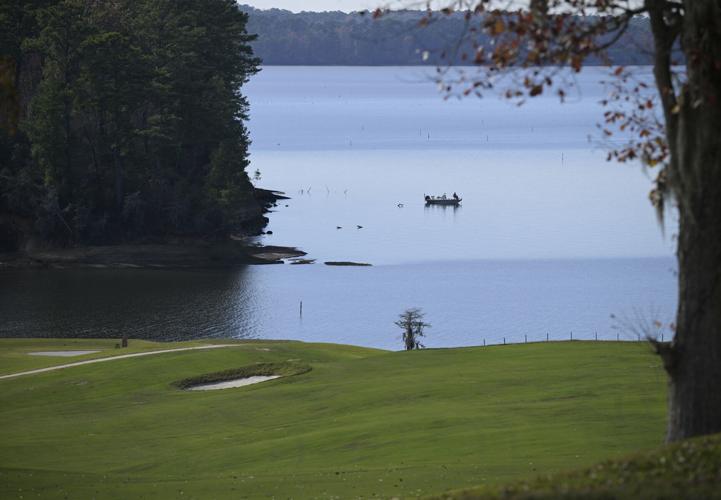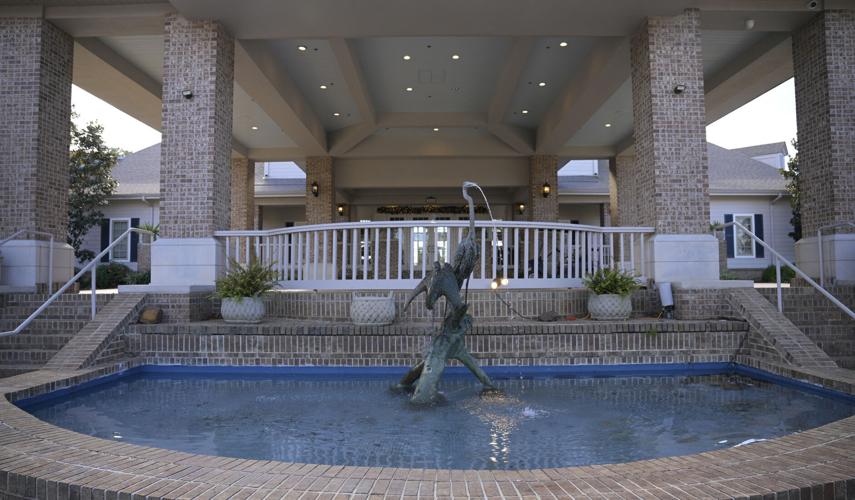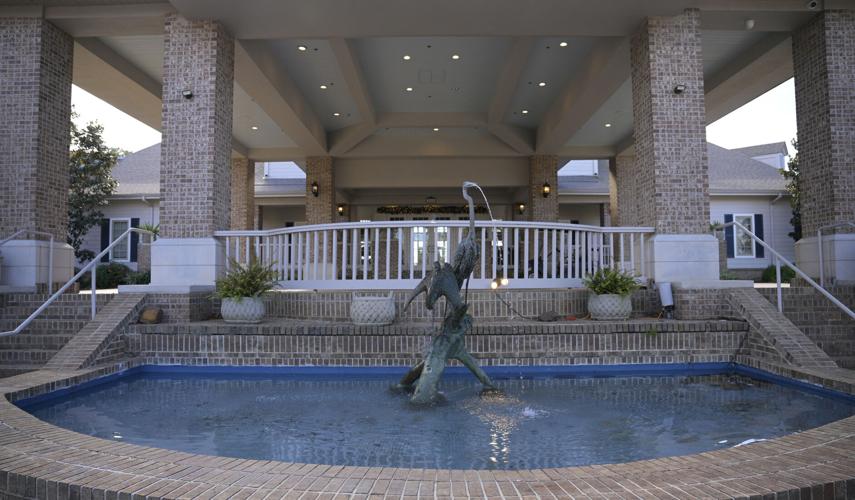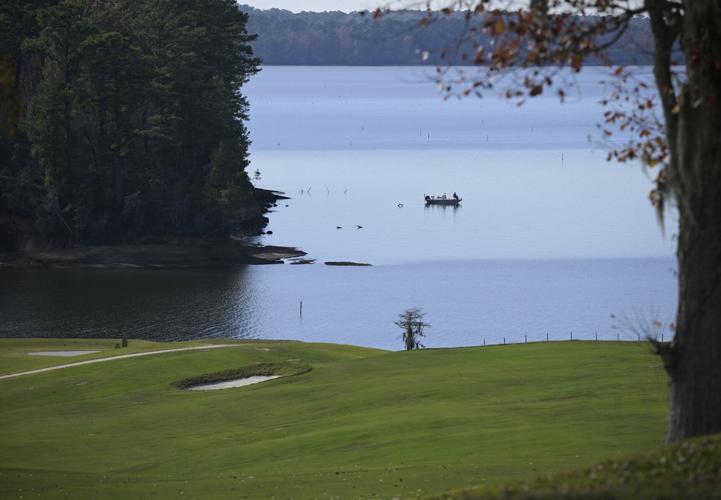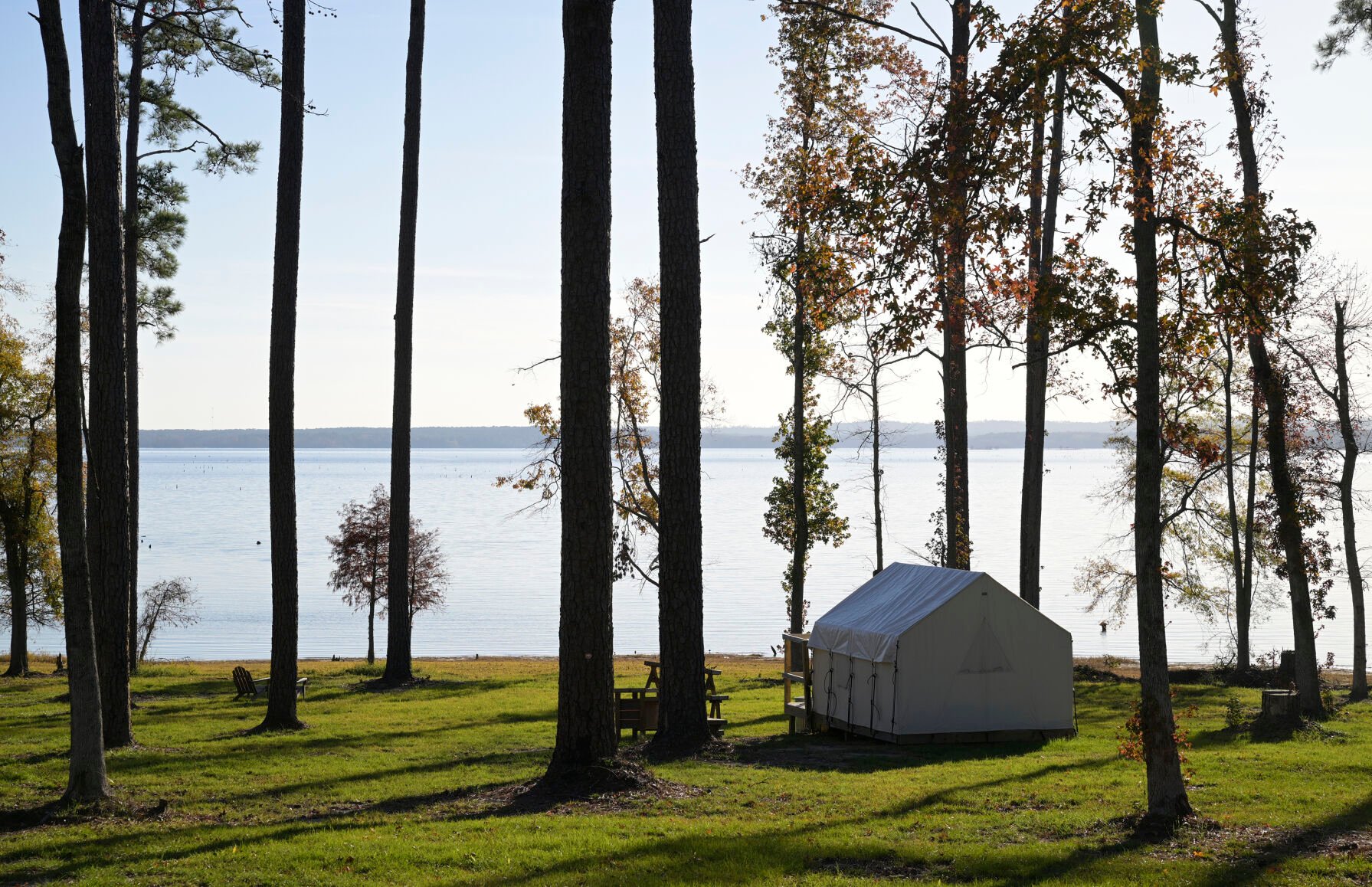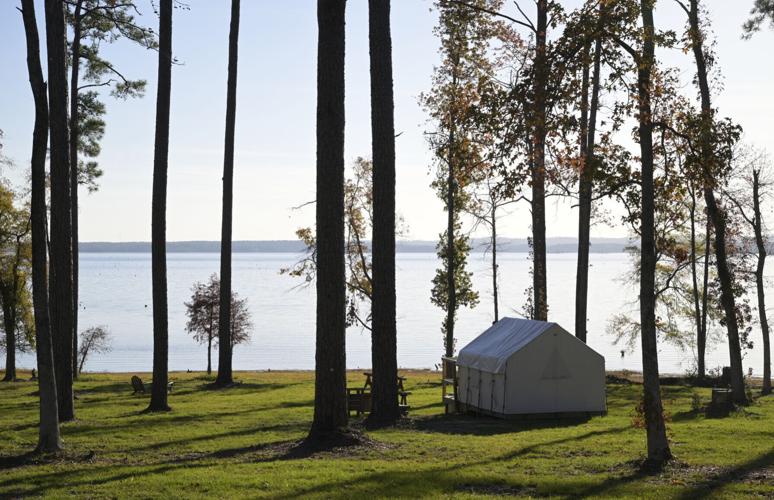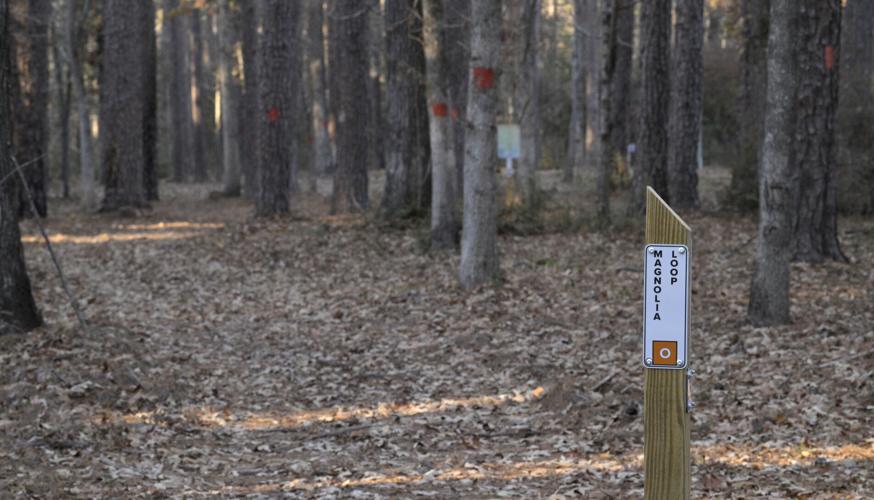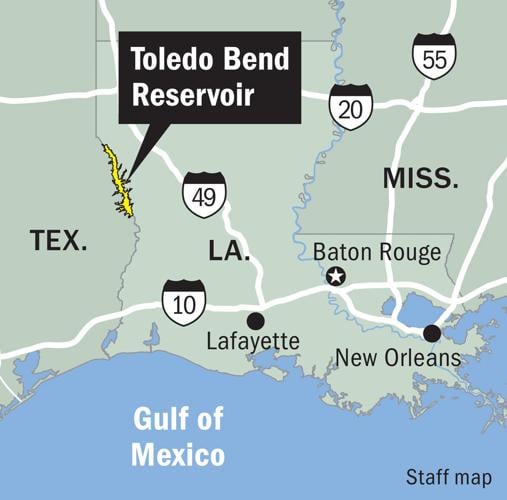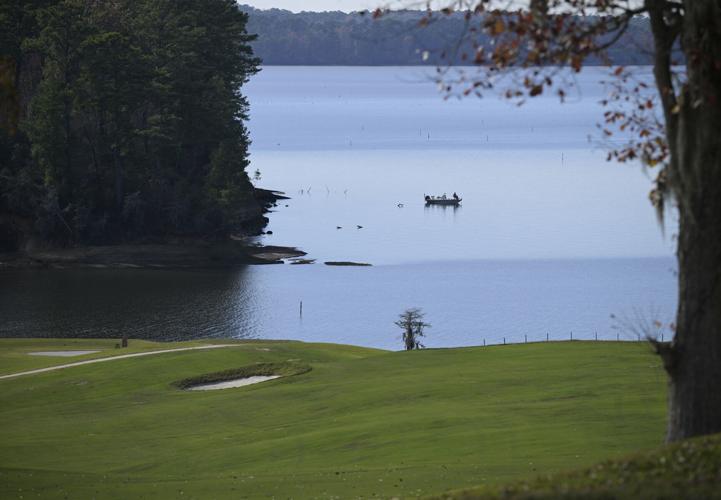The agency overseeing the state's share of the huge Toledo Bend Reservoir in central-western Louisiana is looking again at whether to sell water to private Texas investors — and is facing renewed opposition from people who live alongside or otherwise count on the lake's waters.

Built as a joint project by Texas and Louisiana in the 1960s for hydroelectric power, water supply and recreation, the 186,000-acre reservoir created from damming the Sabine River is the fifth largest man-made lake in the nation, according to agency materials.
Straddling the Louisiana-Texas border, the jagged-edged reservoir has become a boating, fishing and camping spot rimmed with lakeside homes, but also remains an ample source of water in an increasingly water-thirsty world.
The controversy led Gov. Jeff Landry to weigh in last week in an attempt to offer assurances that any deal would get the close local and state scrutiny that's been in the law for more than a decade.
"There's been some false reports on social media about selling Louisiana water out of state," he wrote on social media. "I'd like to let you all know these reports have no merit — there have been no changes to this process!"
Some of the same Texas investors approached the agency, the Sabine River Authority of Louisiana, nearly 15 years ago for 600,000 acre-feet annually for 50 years — three times the amount of water being sought now — but couldn't win approval from then-Gov. Bobby Jindal.
Over the past three years, they renewed talks on a new proposal that would have gradually increased withdrawals over 30 years to 600,000 acre-feet, according to agency documents, but an earlier letter of intent for that deal expired last fall.
Now the company, Aqueduct Partners LP of Dallas, Texas, is offering to seek one-third of the final withdrawal total from the previous request, authority officials said. Henry Goodeaux II, the authority board chairman, appointed a six-member board committee last week to eventually recommend whether to engage in renewed discussions with Aqueduct Partners.
Some residents question the wisdom of selling Louisiana water to another state, whether the amount agreed upon would eventually expand and if the price would be worth it. They also ask if the already well-funded agency needs the new revenue and, most of all, are concerned water levels could be lowered too much and harm the lake and the recreation on it.

A stand of cypress trees grows in an inlet of Toledo Bend Reservoir surrounded by the golf course at Cypress Bend Resort in Sabine Parish, La., Wednesday, Dec. 20, 2023.
"Once that valve opens, it will never close again because it's being used for human consumption," said Shane Sloane, 54, a Lafayette insurance agent whose family has a longtime lake home.
The self-funded agency ended fiscal 2024 with a nearly $110 million surplus, about $35.4 million of which hasn't been set aside for specific needs, an audit shows.
Agency officials said the pipeline that the company is proposing could take eight to 10 years to build before the first drop of water is withdrawn — and that would come after a potentially lengthy review and state approval process.
"When it comes down to it, they may say, 'We can't do that,'" Goodeaux said.
Calls to the listed agent for the company weren't returned.
'That's the difference'
Officials with the state authority say the 200,000 acre-feet per year being sought amounts to a small percentage that flows downstream through the reservoir for power generation or the overflow spillway.
They argue water sales would be many times more lucrative than using the same volume for hydropower. They also note it could provide a financial hedge against an aging hydroelectric system in a more competitive electricity market that has the authority down to one power buyer.
In a recent presentation on the proposal, Warren Founds III, executive director of the authority, explained that Louisiana's share of the water sales would generate $7.2 million per year. Water sales, already about half of the authority's annual revenue, would go up by 80%, audits show.
The same volume of water currently generates $225,000 for the authority's share of electrical sales.
"So that's the difference that we're talking about when we look at our operations and why the river authority and past boards would have ever directed whoever was in my place right here to, 'You ought to be looking at water sales towards your future,'" Founds said.
The full volume of the water sales would be worth $14.4 million per year, authority officials said, split with the authority's companion agency, the Sabine River Authority of Texas, as the electricity fees currently are.
The Louisiana and Texas authorities split the reservoir water 50-50. Each has the right to sell about 1 million acre-feet of water from behind the dam but must divide the revenues, authority officials said.

Options for lodging at North Toledo Bend State Park on Toledo Bend Reservoir in Sabine Parish, La., include tents by Tentrr, shown here Wednesday, Dec. 20, 2023.
The Louisiana authority sells around 36,000 acre-feet per year from its allocation to Louisiana users, International Paper and small local water systems, including for Many, Logansport and Mansfield. The agency also sells water once it leaves the reservoir through a diversion canal to industrial plants and communities in the Lake Charles area.
The reservoir can hold nearly 4.5 million acre-feet of water and has, on average, another 4 million acre-feet pass through the system each year. About 80% of that additional amount is used for electrical generation, authority documents say.
Goodeaux explained that if the full year's worth of proposed withdrawals for Texas were taken all at once, this 200,000 acre-feet would lower the reservoir levels by 13 inches, or about an inch per month.
"I will lose more than that in evaporation this time of year," he said. "This amount is kind of trivial on the lake."
At the same time, the reservoir has experienced droughts where flow through the lake was about a quarter of the 4 million acre-foot average.
During the 2011 drought, reservoir water levels dropped more than 12 feet from the operational peak. Those reductions were exacerbated, however, because the lake was lowered by 3 feet for previously planned reservoir repairs, authority officials said.
Under state law and federal licensing requirements, the authority must maintain relative stability in lake levels following legislative and other changes in the 2000s. The reservoir's operational range for electrical power generation has been narrowed from the designed 10 feet of play to 4 feet during typical conditions.
Exceptions exist for power and other emergencies.
A statewide plan?
Toledo Bend isn't the only place where tensions have emerged over sharing water among people, business and agriculture.
In Baton Rouge, concerns about saltwater intrusion into the region's primary drinking water aquifer have spurred years of debate over whether big industrial users should continue to use the underground resource when the Mississippi River is nearby. The Chicot and Sparta aquifers in southwest and northeast Louisiana have had their own stresses over heavy use.
In 2020, seeing those problems and the potential for water-needy states to pursue Louisiana water, the state Legislative Auditor's Office recommended the state develop a water management plan, in part, to determine what Louisiana's needs would be in the future and the value of its water.
The report specifically cited the failed 2011 proposal to ship a piece of Louisiana's share of Toledo Bend Reservoir water to Texas.
The state never created that recommended plan, state natural resource officials said, but the Legislature added layers of approval for any future out-of-state deal from Toledo Bend.
In addition to the authority board, two-thirds of the six parishes that border the reservoir must back the deal, along with the House and Senate natural resource committees and the governor. The Federal Energy Regulatory Commission must also weigh in if the volume ever exceeds 1 million acre-feet per year.

Glamping options by Tentrr are available for lodging at North Toledo Bend State Park on Toledo Bend Reservoir in Sabine Parish, La., shown here Wednesday, Dec. 20, 2023.
As news of renewed interest in the deal spread, state officials reiterated that law in an attempt to address false rumors that recently adopted legislation, Act 458, vested total authority over such a sale with the state Department of Energy and Natural Resources secretary.
"The law does not weaken or eliminate any of the multiple safeguards or approval steps required by law," the agency statement says.
Goodeaux, the authority chairman, said it will probably be five to six months before the committee and full board even decide whether to restart talks on a letter of intent with Aqueduct Partners.
The 78-year-old, who has been on the board for 19 years and lives along Toledo Bend, says he's as interested as anyone in ensuring the lake remains as it is for his grandchildren.
"They come up now, but I want them to come up even after I'm gone and still have it just like it is now," Goodeaux said.
Those assurances aren't enough for some residents.
Bernie Sloane, 77, who is Shane's dad and has owned the family home on Toledo Bend for 27 years, said he can't understand why authority officials haven't already gotten the message that residents don't want out-of-state sales.
"What has to happen to stop this once and for all is that we need to pass legislation," he said.

